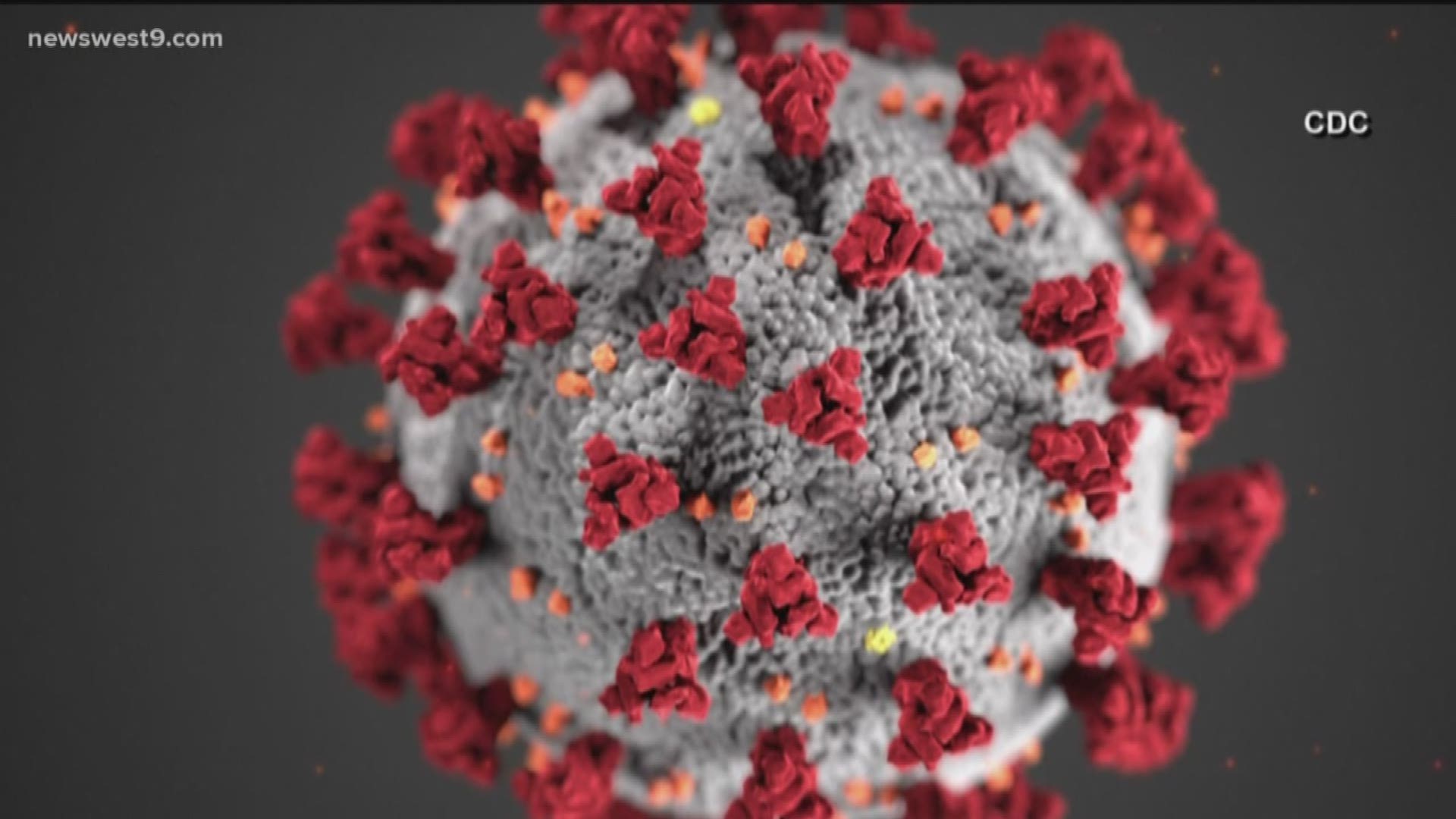MIDLAND, Texas — It's a question many of us are asking: will warm weather kill COVID-19?
Coronavirus is a respiratory virus, passed along mainly by water droplet spread, so West Texas' climate may be well suited to reduce the spread, especially as we get closer to summer.
But until we get to that point, the virus might currently be in favorable conditions to survive.
The virus has been shown to survive on hard surfaces for a couple of days and in stagnating air for up to two or three hours in conditions when it's sitting in a moist, room temperature climate.
Dr. Wilson is optimistic that as West Texas gets warmer and drier, the number of cases should go down, similar to the flu virus.
"We hope that it's going to behave like every other virus that we know of that's respiratory spread and water droplet spread," says Dr. Larry Wilson, Midland Memorial Hospital's Chief Medical Officer.
It's too soon to say for certain, but there is some research to support Dr. Wilson's hypothesis.
According to a 2010 study from the Centre for Infectious Diseases at the University of Edinburgh, three out of the four studied coronavirus strains showed a marked seasonality, with the highest spike of infections in winter.
It's important to note that the strains studied in 2010 were different from COVID-19, but it does give reason to believe that we may see some relief in the summer.
Whether or not COVID-19 is seasonal, Dr. Wilson believes that the virus just may have a difficult time of surviving in the heat. He believes that because we are not shut indoors and huddled together in the summer, the virus won't be able to spread from person to person as easily.
MORE FROM NEWSWEST 9:

